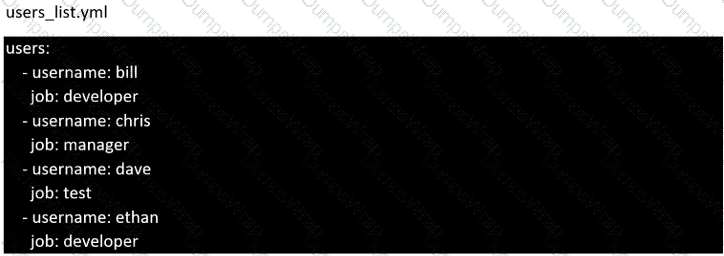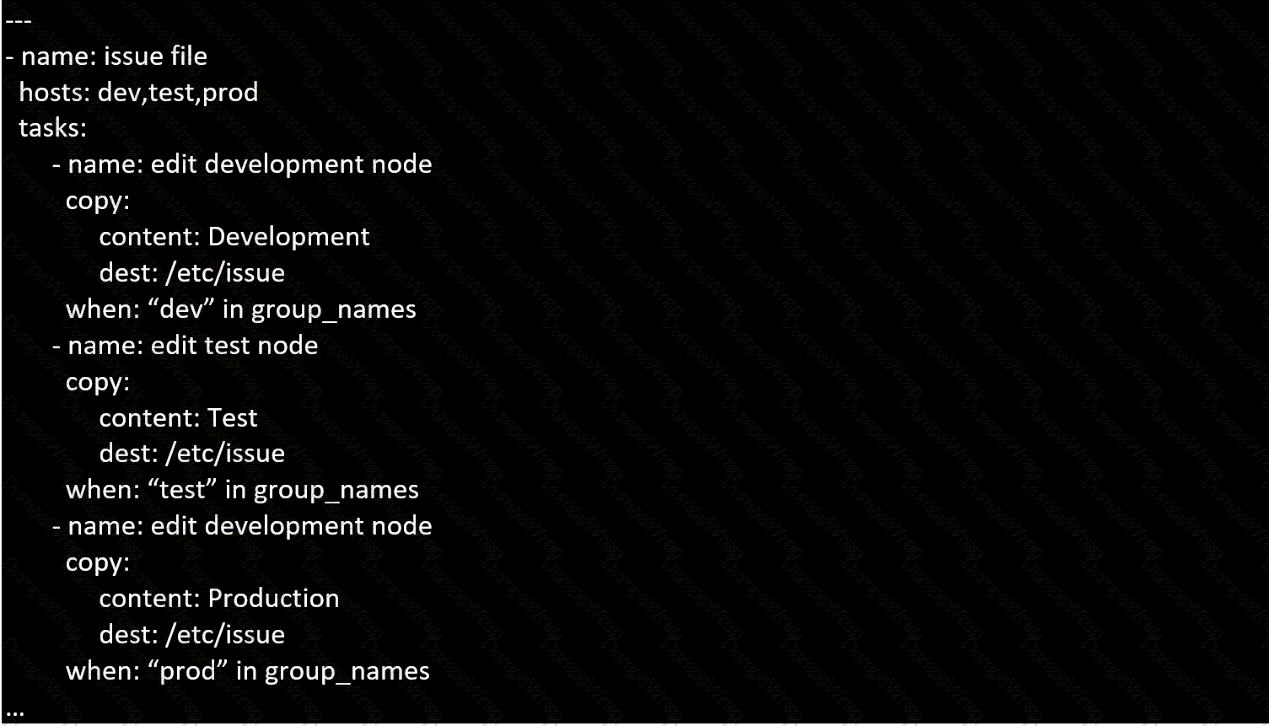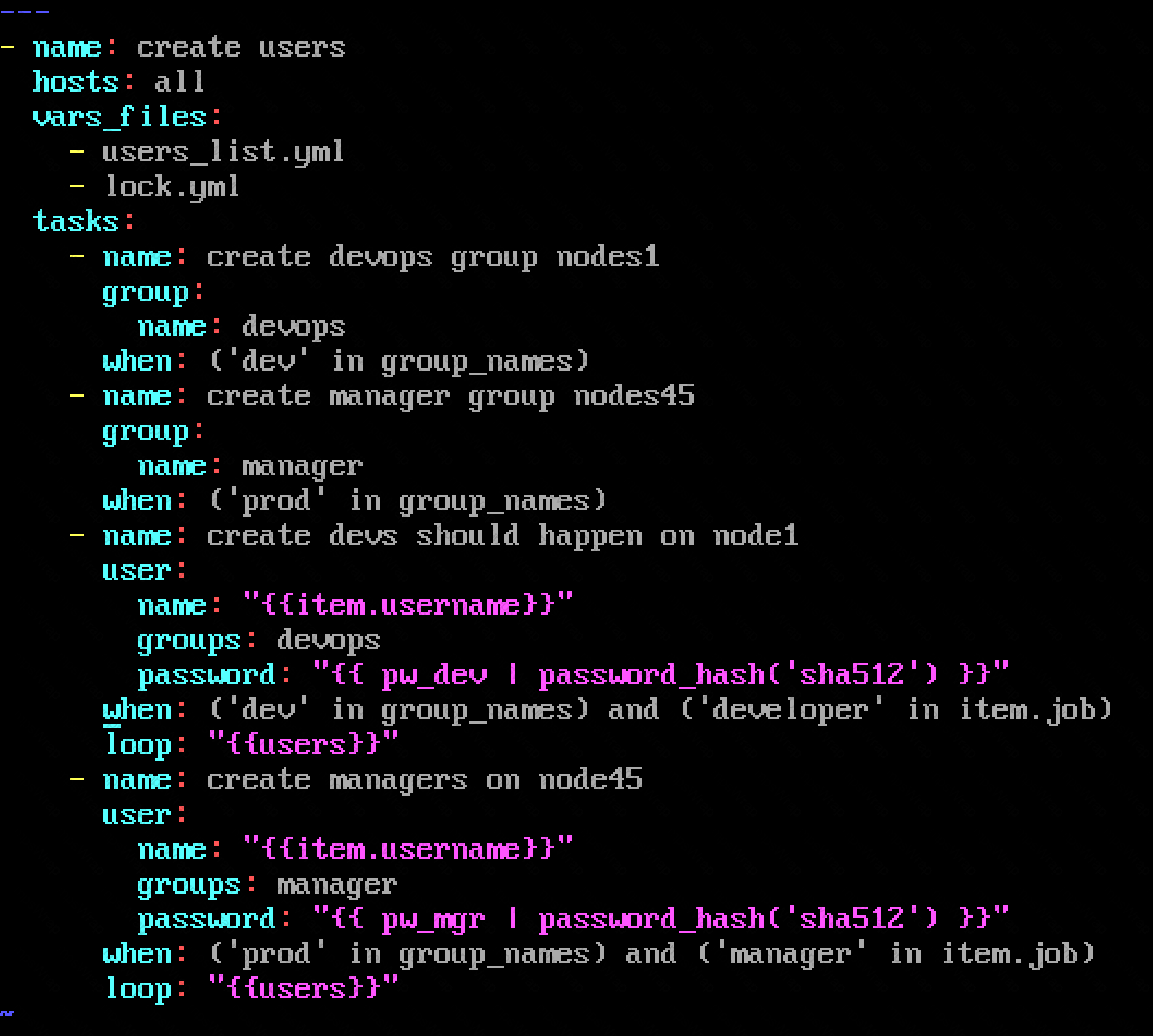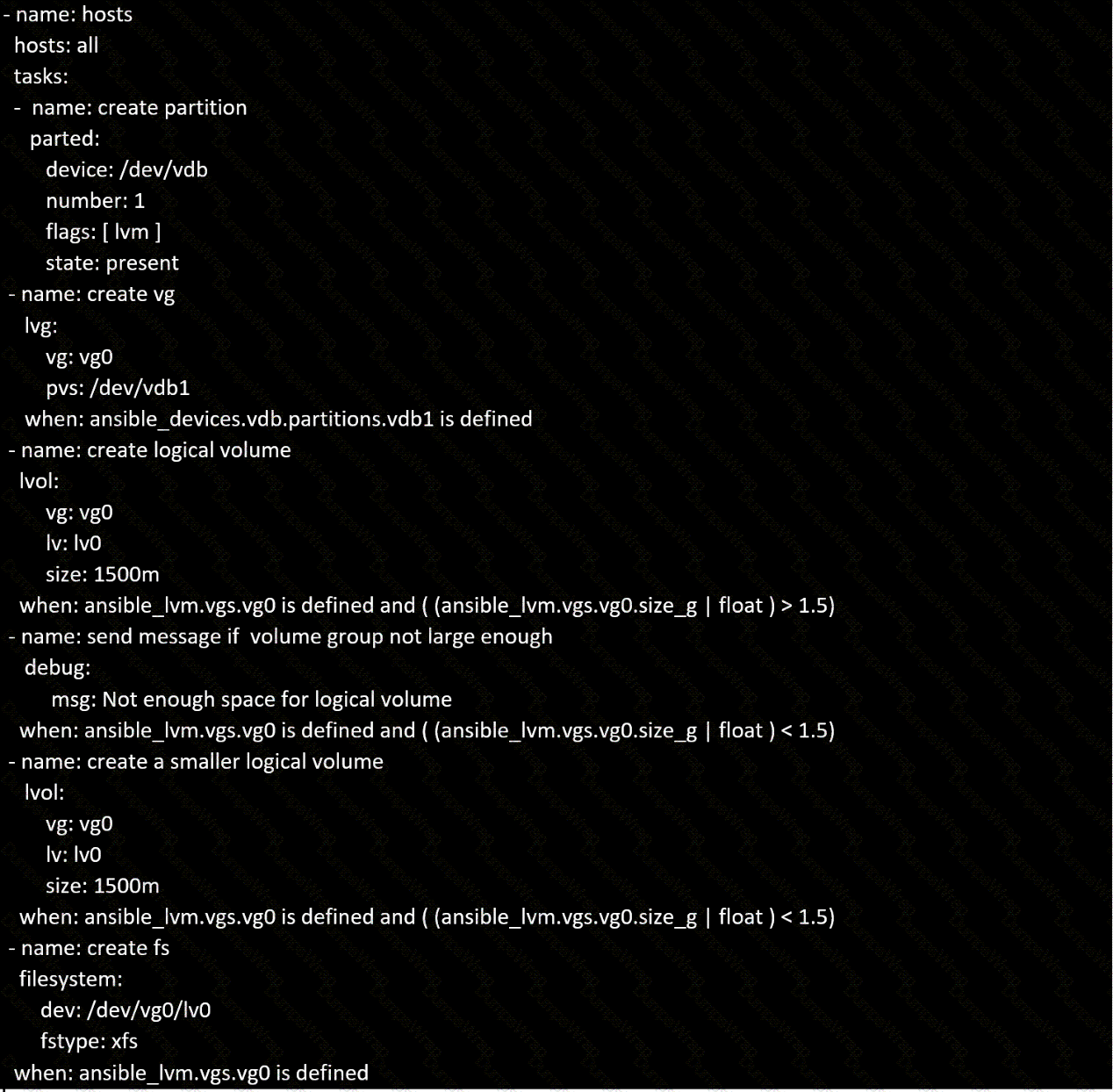Red Hat Certified Specialist in Advanced Automation: Ansible Best Practices Questions and Answers
Create a playbook called issue.yml in /home/sandy/ansible which changes the file /etc/issue on all managed nodes: If host is a member of (lev then write "Development" If host is a member oftestthen write "Test" If host is a member ofprodthen write "Production"
Using the Simulation Program, perform the following tasks:
Ad-Hoc Ansible Commands (Number Two) Task:
1.Use the ad-hoc command to make sure php is installed.
2. Use the ad-hoc command to make sure that php is installed and is the latest version.
3. Use the ad-hoc command to make sure that httpd is installed.
4. Use the ad-hoc command to remove httpd fromthe servers.
Create a file calledadhoc.shin/home/sandy/ansiblewhich will use adhoc commands to set up anew repository. The name of the repo will be 'EPEL' the description 'RHEL8' the baseurl is -release-latest-8.noarch.rmp'there is no gpgcheck, but you should enable the repo.
* You should be able to use an bash script using adhoc commands to enable repos. Depending on your lab setup, you may need to make this repo "state=absent" after you pass this task.
Create the users in the fileusersjist.ymlfile provided. Do this in a playbook called users.yml located at/home/sandy/ansible.The passwords for these users should be set using thelock.ymlfile from TASK7. When running the playbook, the lock.yml file should be unlocked withsecret.txtfile from TASK 7.
All users with the job of 'developer' should be created on thedevhosts, add them to the group devops, their password should be set using thepw_devvariable. Likewise create users with the job of 'manager' on theproxyhost and add the users to the group 'managers', their password should be set using thepw_mgrvariable.

In /home/sandy/ansible/create a playbook calledlogvol.yml. Inthe play create a logical volume calledIv0and make it of size 1500MiB on volume groupvgOIf there is not enough space in the volume groupprinta message"Not enough space for logical volume"and then make a 800MiBIv0instead. If the volume group still doesn't exist, create a message"Volume group doesn't exist"Create anxfsfilesystem on allIv0logical volumes. Don't mount the logical volume.
Create a file called mysecret.yml on the control host using ansible vault in home/bob/ansible. Set the password to 'notasafepass' and inside the file create avariable called dev_pass with the value of devops. Save the file. Then go back in the file and change dev_pass value to devops123. Then change the vault password of mysecret.yml to verysafepass
Install and configure ansible
User sandy has been created on your control node with the appropriate permissions already, do not change or modify ssh keys. Install the necessary packages to run ansible on the control node. Configure ansible.cfg to be in folder /home/sandy/ansible/ansible.cfg and configure to access remote machines via the sandy user. All roles should be in the path /home/sandy/ansible/roles. The inventory path should be in /home/sandy/ansible/invenlory.
You will have access to 5 nodes.
node1.example.com
node2.example.com
node3.example.com
node4.example.com
node5.example.com
Configure these nodes to be in an inventory file where node I is a member of group dev. nodc2 is a member of group test, node3 is a member of group proxy, nodc4 and node 5 are members of group prod. Also, prod is a member of group webservers.





